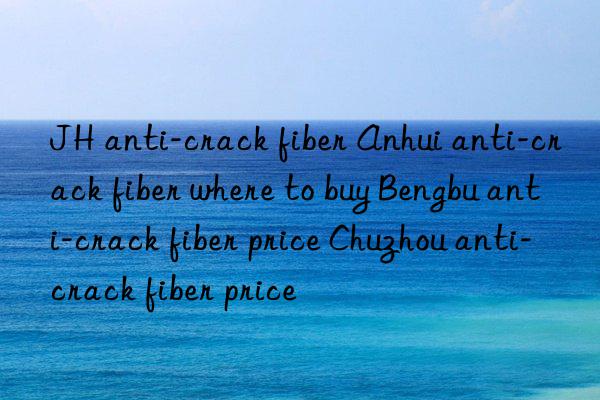
1. Product introduction
Anti-crack fiber, also known as engineering fiber, concrete fiber and anti-crack fiber, is a high-quality fiber made of polypropylene as the main raw material and manufactured with a unique production process. Strength bundled monofilament fibers. Adding it to concrete or mortar can effectively control cracks caused by plastic shrinkage, dry shrinkage, temperature changes and other factors of concrete (mortar), prevent and inhibit the formation and development of cracks, and greatly improve the crack resistance, impermeability, impact resistance and earthquake resistance of concrete. ability.
2. Scope of use
Anti-crack fiber can be widely used in underground engineering waterproofing, concrete layers, walls, floors, pools, basements, etc. in industrial and civil construction projects, as well as Used in various mortars and road and bridge projects.
3. Main properties
1. Crack-resisting effect on concrete:
Crack-resistant fibers are three-dimensionally distributed in concrete, which can effectively reduce microscopic cracking. The stress concentration at the crack tip can weaken or eliminate the tensile stress caused by dry shrinkage of concrete or mortar, preventing the occurrence and expansion of micro-cracks. In plastic concrete, crack-resistant fibers play a role in supporting the aggregate. It can reduce and inhibit the segregation tendency of concrete, thus reducing or even preventing the occurrence of surface cracks in concrete.
2. Improvement of the impermeability of concrete:
Crack-resistant fibers can effectively reduce the plastic cracks of concrete and inhibit the development and interconnection of cracks. Evenly distributed fiber monofilaments form a supporting system. It hinders surface water separation and aggregate settlement, reduces the bleeding of concrete, reduces the bleeding channels of concrete, greatly reduces the porosity in concrete, and therefore significantly improves the impermeability of concrete.
3. Improvement of the freeze-thaw resistance of concrete:
The existence of anti-crack fibers in concrete can effectively reduce the cracking in concrete caused by multiple freeze-thaw cycles. The tensile stress is concentrated, preventing further micro expansion. In addition, due to the improvement of concrete's impermeability, it is of course also beneficial to improve its freeze-thaw resistance.
4. Effect on the freeze-thaw resistance of concrete
5. Improvement of impact resistance and toughness of concrete
Crack-resistant fibers help absorb concrete The kinetic energy of the component when it is impacted, and due to the crack resistance effect of fibers, when concrete is subjected to impact loads, fibers can prevent the rapid expansion of internal cracks, so it can effectively improve the impact resistance and toughness of concrete.
6. The influence of fiber on the impact strength of concrete.
7. The impact of fiber content on concrete toughness
(1) Improvement of concrete durability:
The cracking effect can greatly reduce the occurrence and development of cracks. The reduction of internal porosity slows down the erosion and penetration of corrosive water and chemical media in the external environment, chlorine salts, etc. In other words, the cracks need to provide the ability to cause damage. The channels through which the chemical and corrosive effects gradually penetrate and expand become negligible due to the large reduction in cracks, and the harm to the corrosion of the main structural bars is reduced, thereby greatly improving the durability of the concrete.
(2) Improvement of concrete fire resistance:
In the concrete, especially participating in crack fiber in high -strength concrete, it can effectively improve the fire resistance of concrete and the occurrence of fires. time security. High-strength concrete has considerable compactness. In flames, the high-pressure steam formed by the heating of free water and decomposed chemical water inside the concrete is difficult to escape, which often leads to sudden bursting and collapse of concrete components, causing serious harm.
4. Packaging and Storage
This product is packed in plastic bags inside woven bags, each bag weighing 20kg. This product should be stored dry and has a shelf life of two years. March 5, 2013
</p

 微信扫一扫打赏
微信扫一扫打赏

